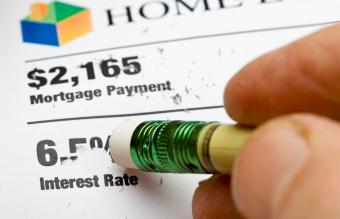
Homeowners who are paying off their mortgage have questions about the process and "Can a lender charge a release mortgage fee?" is a common one.
Release Mortgage Fee Defined
A release mortgage fee is charged when a homeowner pays off the mortgage in full. It is charged by the lender to help defray the administrative costs of changing the information at the land registry office. It also covers legal and staff expenses for doing so.
The mortgage release fee is not the same thing as being charged a penalty for paying off the mortgage early or switching to another mortgage company before the term has expired. Those charges are called early redemption penalties.
The release mortgage fee may also be referred to as one of the following terms:
- Deed release fee
- Sealing fee
- Final administration fee
- Discharge fee
- Final redemption fee
Fees may be charged when a homeowner contacts the lender to find out how much is left owing on the mortgage. The mortgage holder will prepare a payoff letter with this information along with a fee for doing so. Another fee is charged for sending the letter to the homeowner by facsimile transmission.
Can a Lender Charge a Release Mortgage Fee
Lenders in the United States commonly charge a mortgage release fee when a homeowner pays their mortgage off in full. The lender prepares the necessary documentation to discharge the mortgage and sends it to the county register for processing. There is a fee charged to release the lien that the lender will pay out on the homeowner's behalf and then recover the cost from the borrower.
Homeowners in the United Kingdom can reclaim the amount of the mortgage release fee they were charged and get a refund. The cost of release mortgage fees has increased over the last several years and a customer may be charged somewhere in the range of £600 - £1,000 when their mortgage is paid for in full and they want the title to the property updated.
Mortgage Release Fee in the UK
Lenders have increased theses fees over time because they have been more inclined to offer their customers incentives, such as low introductory interest rates, to encourage homeowners to arrange financing through them.
In January of 2007, the Financial Services Authority (FSA), the regulator responsible for overseeing mortgages in the United Kingdom, determined that mortgage lenders had to justify the amount they were charging for release mortgage fees. It noted that a number of lenders were charging customers more than the amount agreed to when they took out the mortgage.
The lenders countered by stating that customers had signed mortgage documents agreeing that they could vary the fee charged over time. The FSA found that the contract's terms could be varied, but only if the customer agreed to the change. Making unilateral changes to the term of the original contract meant that the lenders were breaking the law.
Reclaiming the Mortgage Release Fee
The consumer who paid more than he agreed to when the mortgage was discharged is entitled to refund of the difference between what he agreed to and the amount actually paid. Some lenders will even pay interest on the amount owing, so it doesn't hurt to ask whether the one you are dealing with is prepared to do so.
A customer who is interested in making a claim for a refund of the mortgage release fee should check his or her original mortgage documents to find out how much they agreed to pay for this expense. If they aren't sure what the amount was, they can contact the lender to ask what the original contract said and how much they actually paid. Once they have the figures, they can write to the lender asking for the difference to be refunded to them.
The answer to the question, "Can a lender charge a release mortgage fee?" is "Yes." Consumers should make sure that the amount they are charged is the same as what they originally agreed to.







